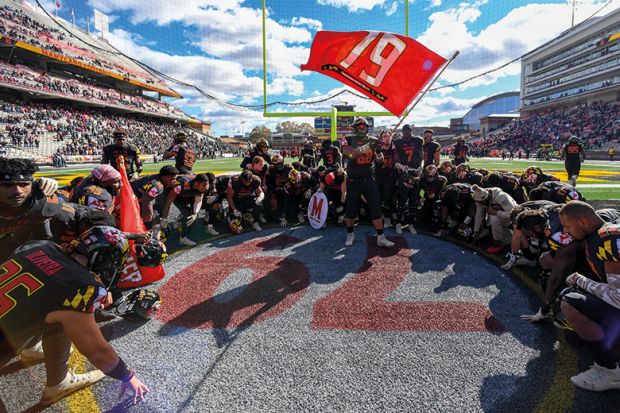The head of one of the US’ largest university systems has reiterated his commitment to sport despite a scandal that had its roots in the death of a footballer and led to the resignation of the flagship campus’ president.
Robert Caret, chancellor of the University System of Maryland, told Times Higher Education that the enormous wealth concentrated in major US college sports made them almost impossible for higher education institutions to control.
“The money behind big-time college athletics is a problem,” Dr Caret said. “I don’t think there’s a president in the country that wouldn’t say that.”
Dr Caret was speaking amid the continuing fallout from the death of 19-year-old Jordan McNair, a University of Maryland American football player who died in June 2018 of allegedly untreated heatstroke suffered at a gruelling team practice.
Despite the findings of an internal study that described an abusive culture in the football team, Maryland’s governing board of regents voted to keep the football team’s head coach, D. J. Durkin. The campus’ president, Wallace Loh, refused that recommendation and then announced his own retirement at the end of the year. After an outcry on campus and beyond, Mr Durkin was fired and the chairman of the regents, James Brady, announced his immediate resignation.
Dr Caret said that the case may have ended badly but was hardly unique. For the past three decades, university leaders have worked through the Knight Commission on Intercollegiate Athletics to draft reports full of recommendations for improvement. “But none of them have ever been able to implement any of the recommendations they make”, Dr Caret said, “because it’s just too legally or politically difficult to do.”
Meanwhile, the benefits of participating in college sport are just too great to pass up, Dr Caret said. The millions of dollars each university receives are an important element, he said, although much of that money is reinvested into the teams. Instead, he said, the chief value of big-time college sports is reputational, making the institution look attractive to outsiders and encouraging alumni to feel connected and to donate.
That is especially true of membership in a major college football conference, Dr Caret said. “The positive side is that you’re in a peer group you want to be recognised as being a member of.”
In 2012 Maryland moved its football team from the local Atlantic Coast Conference into the Big Ten Conference, based near Chicago, seeking greater revenue. This shift appears to have been associated with the greater pressure for success that led to the development of an abusive culture.
Dr Caret said that, while football needs ongoing reform, it should not be abandoned.
“If you scale Mount Everest, there are dangers; if you play football, there are dangers,” he said. “I think we have to be forthright as we learn more about the dangers and try to mitigate them.”
Register to continue
Why register?
- Registration is free and only takes a moment
- Once registered, you can read 3 articles a month
- Sign up for our newsletter
Subscribe
Or subscribe for unlimited access to:
- Unlimited access to news, views, insights & reviews
- Digital editions
- Digital access to THE’s university and college rankings analysis
Already registered or a current subscriber? Login








